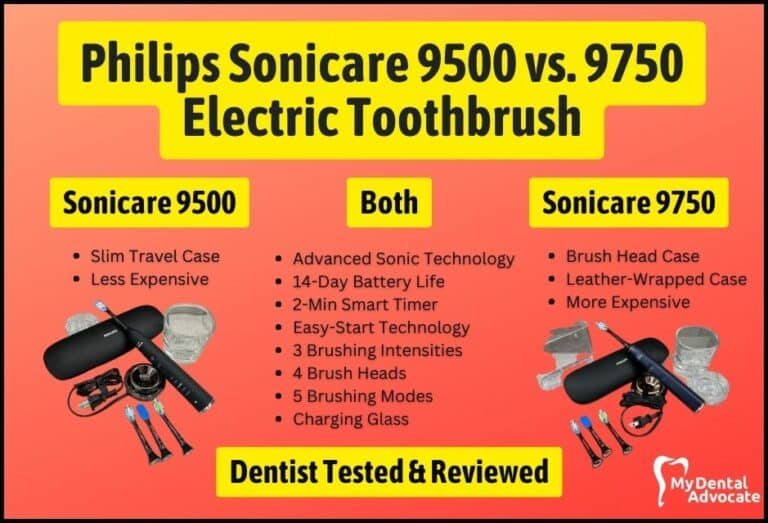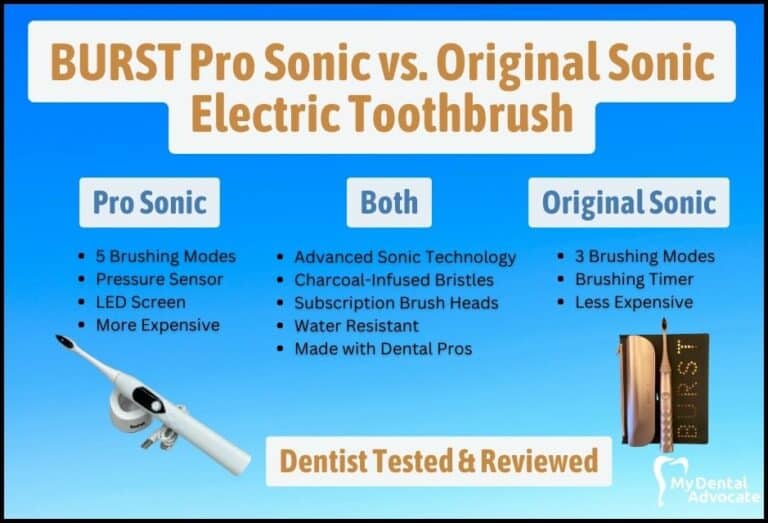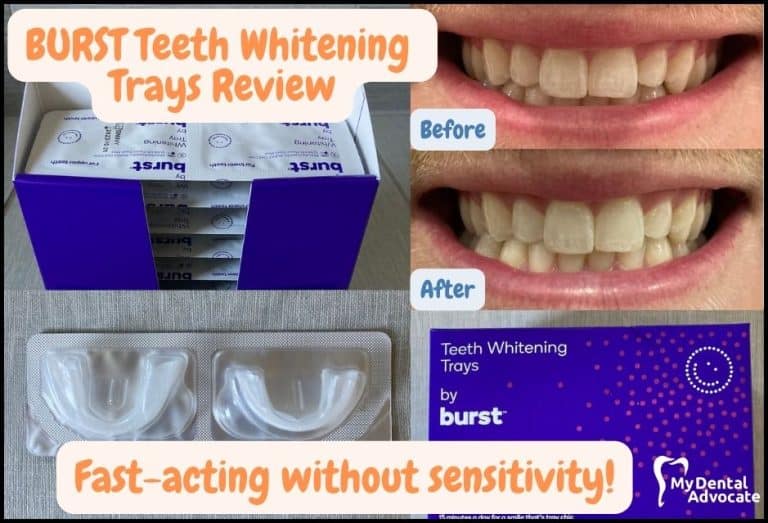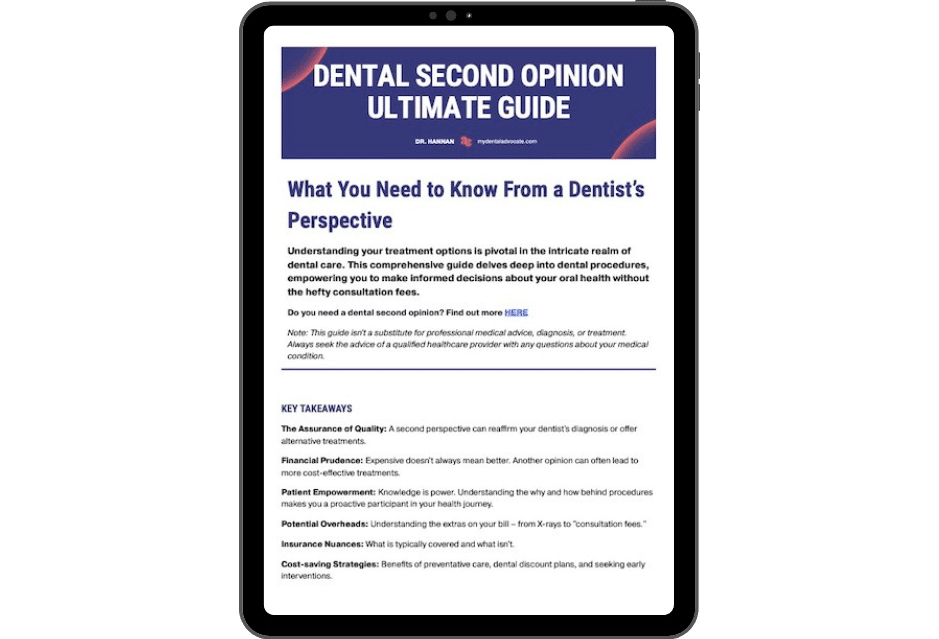Veneers Guide (Types, Procedures, and Aftercare Tips)

Veneers are a popular cosmetic dental option for those looking to enhance the appearance of their teeth.
They consist of thin, custom-made shells designed to cover the front surface of teeth, improving their color, shape, size, or length.
They offer a solution for a range of dental issues, including discolored, worn down, chipped, misaligned, uneven, or abnormally spaced teeth.
Key Highlights
- Veneers improve the appearance of teeth by covering their front surface.
- The procedure involves tooth preparation, impressions, and permanent bonding.
- Proper care can extend the longevity of your veneers.
Related Posts
- Best Mouthwash for Veneers (Dentist-Recommended)
- Dental Technology Innovations Transforming Modern Dentistry
Veneers Overview
Veneers offer a way to achieve a picture-perfect smile by concealing imperfections on your teeth with custom-fit layers.
Need Dental Advice? Ask Dr. Hannan!
What Are Veneers?
Veneers are thin coverings designed to fit perfectly over the front surface of your teeth. They are custom-made using materials like tooth-colored composite or porcelain, effectively masking a range of cosmetic issues.
You might choose veneers to cover chips, cracks, gaps, or tooth discoloration, enhancing the appearance of your smile.
Types of Veneers
Veneers come in several types, each with its unique benefits.
Porcelain veneers are known for their durability and ability to last up to 15 years, offering a natural look and feel.
On the other hand, composite veneers are more cost-effective and require less tooth enamel removal, but they may not last as long as porcelain.
No-prep veneers like Lumineers® provide a reversible alternative to traditional veneers, often without the need to remove any enamel.
Snap-on veneers offer a temporary, removable solution that you can take off as desired.
Each type serves different needs and preferences, so it’s essential to consult with your dentist to determine which type is best suited for your specific situation.
Treatment & Procedure
The process of getting veneers is a straightforward but meticulous process that enhances your smile’s appearance. It typically involves a few key steps from consultation to the final follow-up.
Initial Consultation
During your initial consultation, your dentist will assess your dental health and discuss your aesthetic goals.
It’s essential to have a clear understanding of what you want to achieve with veneers and communicate this with your dentist.
You’ll also learn about the types of veneers, such as porcelain or composite, and decide which is best for you.
Tooth Preparation
To prepare your teeth for veneers, your dentist will remove a small amount of tooth enamel—usually less than a millimeter. This is to ensure that the veneer fits comfortably and looks natural.
Impressions of your teeth are then taken and sent to a lab where your custom veneers are crafted.
Veneer Bonding Process
Once your veneers are ready, the bonding process begins.
Your dentist will place the veneer on your tooth to check the fit and color, making any necessary adjustments.
After cleaning, polishing, and etching your tooth to prepare for bonding, the veneer is secured with dental cement. A special light helps to harden the cement quickly.
Follow-Up Visits
After the veneers are in place, you’ll have follow-up visits to check on the placement and your gum response to the veneers.
This is also your chance to address any discomfort and to learn how to care for your new veneers properly to ensure their longevity.
Benefits and Considerations
When exploring the option of dental veneers, it’s essential for you to understand both the positive impacts they can have on your smile and the potential drawbacks they carry.
Advantages of Veneers
- Aesthetic Transformation: Your teeth can achieve a significant cosmetic improvement with veneers, as they are tailored to cover dental imperfections such as chips, cracks, and discoloration. These custom-made shells closely mimic the natural appearance of enamel, offering a more uniform and brighter smile.
- Durability & Maintenance: Generally, veneers are made from materials known for their strength and resistance to stains, like porcelain.With proper care, your veneers can last for many years, with porcelain options typically spanning a decade or more, offering a long-term solution for your cosmetic dental needs.
Risks and Limitations
- Irreversibility: The process of applying veneers often requires the removal of a small amount of tooth enamel. This alteration is permanent, meaning that you should consider the long-term implications before committing to the procedure.
- Sensitivity: After getting veneers, you might experience heightened tooth sensitivity to hot or cold due to the enamel that’s been removed. For most, this is temporary, but for some, it can be more persistent.
- Cost Factor: The investment in veneers varies widely and can be substantial, especially for high-quality materials like porcelain.Costs not only account for the materials but also for professional fees associated with the complexity of the procedure.
Caring for Your Veneers
Maintaining your dental veneers is crucial for their longevity and your oral health. Proper care ensures they continue to look as good as when they were first applied.
Daily Maintenance
Brushing:
- Use a soft-bristled toothbrush: Gently brush at least twice a day to prevent scratching your veneers.
- Select non-abrasive toothpaste: Avoid toothpaste with harsh abrasives that can damage the surface of your veneers.
Flossing:
- Be regular: Floss daily to remove plaque and food particles between your teeth and veneers.
Long-Term Care
Dentist Visits:
- Regular checkups: Ensure you visit your dentist every six months or as recommended to keep your veneers in check.
Lifestyle Adjustments:
- Mind your diet: Minimize foods and drinks that can stain your veneers, such as coffee, red wine, and tea.
- Avoid hard objects: Don’t use your teeth to open packages or bite nails, as this can chip or damage your veneers.
Costs and Financing Options
When considering getting veneers, you’ll want to look at the price tag and your payment options. Here’s a breakdown to help you understand the costs involved and what financial assistance might be available to you.
Veneer Types and Average Costs:
- Porcelain veneers: Typically range from $500 to $2,500 per tooth. These are long-lasting and have a natural appearance.
- Composite resin veneers: More affordable, with prices ranging from $250 to $1,500 per tooth. They are not as durable as porcelain but offer a cost-effective solution.
Remember, the final cost can vary based on your dentist’s expertise, your location, and the specific needs of your teeth.
Financing Options:
Most dental insurance plans don’t cover veneers since they’re considered cosmetic. However, don’t let this discourage you. Here are some alternatives:
- Payment Plans: Many dental offices offer installment plans. This allows you to spread out payments over time.
- Dental Discount Plans: These can provide discounts on various treatments, including veneers.
- Healthcare Credit Cards: You can also consider healthcare credit cards. CareCredit is an example of a healthcare credit card. They are specifically designed for medical expenses and can offer interest-free periods.
Need a second opinion? We can help! Learn more. Knowledge is power when cultivating healthy dental habits. The more informed you are, the better positioned you’ll be to prevent avoidable and potentially costly dental procedures for you and your family. Watch for future blog posts, where we’ll continue sharing important information, product reviews and practical advice!

About the Author
Dr. Matthew Hannan, also known as “Dr. Advocate,” is a board-certified dentist on a mission to provide accurate dental patient education. He attended Baylor University before completing dental school at UT Health San Antonio School of Dentistry. He now lives in Arizona with his beautiful wife and 4 kids. Dr. Hannan believes everyone should access easy-to-read dental resources with relevant, up-to-date dental research and insight to improve their oral health.

Connect with Dr. Hannan!

Philips Sonicare 9500 vs. 9750 Electric Toothbrush Review 2024
Welcome to the ultimate face-off in oral hygiene—the Philips Sonicare 9500 vs. 9750 Electric Toothbrush showdown! If you’ve been on the fence about which top-tier toothbrush to invest in, you’re in the right place.

BURST Pro Sonic vs. Original Sonic Electric Toothbrush Review 2024
When it comes to keeping our pearly whites, well, white, the Burst Pro Sonic and Burst Original Sonic electric toothbrushes both claim to be at the top of their game. But when these two contenders go head-to-head, which one will leave us with that just-left-the-dentist clean feeling, and which will fall short?

BURST Teeth Whitening Trays Review (Dentist Recommended)
BURST teeth whitening trays are their newest product that features fast-acting results after one 15-minute session. In addition, after completing the 7-day course, you’ll notice dramatically whiter teeth. Say goodbye to the nasty chemical taste…
Gain Clarity with Our FREE Second Opinion Guide
Receive clear, expert second opinions online within 48 hours. Start today!
Product Reviews
Our 250+ dental product reviews (and counting), curated by an experienced dentist, are the most comprehensive online.
Toothbrush Genie
State-of-the-art chatbot designed to help you discover your perfect toothbrush in just a few simple steps!
Cavity Risk Assessment
Cutting-edge digital tool designed to evaluate your individual cavity risk based on your responses to a series of questions.
Gum Disease Assessment
Discover your gum disease risk with our quick and engaging 6-question assessment!


